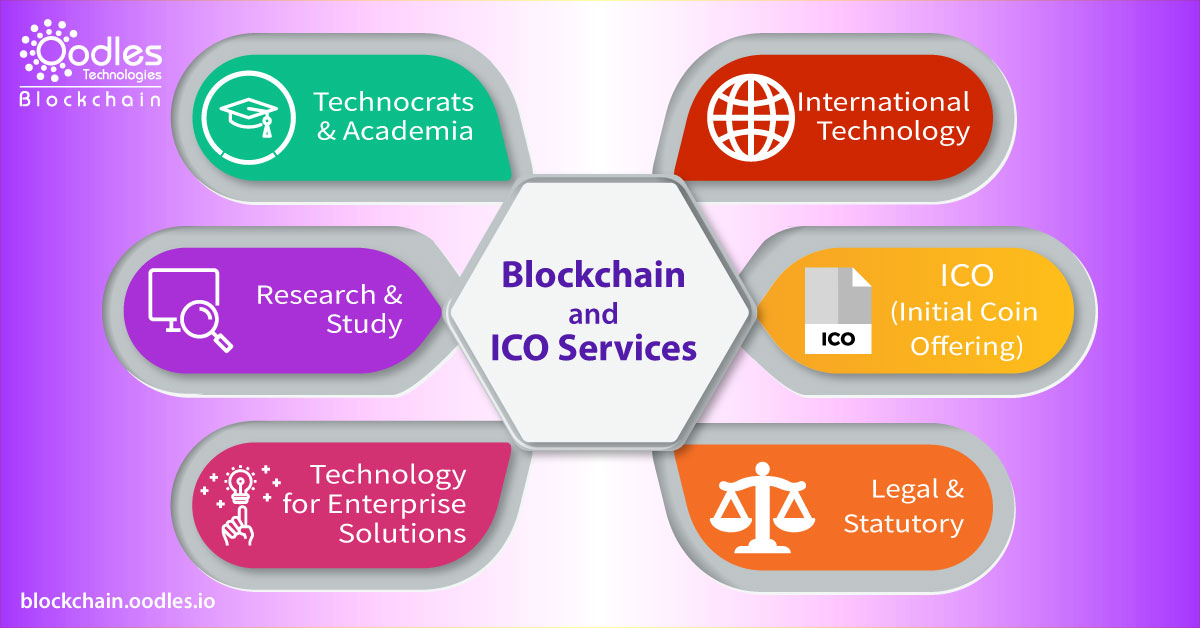-
Blockchain-based ICO services (ICOs) are an innovative way for businesspeople to gather capital for their early-stage enterprises, for customers to acquire rights to underdevelopment products or services, and for investors to enter a new asset level.
By leveraging blockchain-based ICO services, an issuer utilizes the blockchain or DLT (distributed ledger technology) to develop a new cryptocurrency.
Then, he sells the new digit coins or tokens to support the project.
Creating new crypto tokens on top of an existing blockchain platform (e.g., Ethereum or Waves) is quite easy, which has led to a huge increase in blockchain-based ICO services and campaigns in recent years.
Countries like Singapore, Switzerland, and Malta have adopted it as an innovation. They have heavily promoted themselves as the right place for blockchain-based ventures, as well as FinTech companies.
The settings of blockchain-based ICO services are quite different from standard capital-raising settings. The description of the underlying blockchain architecture in white papers helps make the disclosures credible, despite the absence of regulation or enforcement.
Why Blockchain-based ICO Services
A blockchain is a distributed ledger, essentially a chain of information blocks used to store transaction records that get automatically saved across a network of nodes (Computers).
It uses military-grade cryptographic techniques and a consensus mechanism to validate data to add it into a new block and eradicate discrepancies across the network, thus, removing the requirement for any central control or trusted third party.
Blockchain's decentralized feature means no party can control its platforms, including the founders/creators. The tokens are used as a means to reward the founders and everyone else involved in the creation and maintenance of the open-source platforms.
Any node within the network can participate and become a member of open-source blockchain platforms without permission (i.e., “permissionless”). And then, help verify new data in return for tokens.
Bitcoin was the first well-recognized application of such a public, decentralized blockchain platform; so is Ethereum.
On the contrary, some ICOs are likewise crowdfunding campaigns as they utilize a private “permissioned” blockchain structure. As a result, the founders can control the investments and choose what records can be annexed to the blockchain.
Hence, whether an ICO is based on a decentralized blockchain platform or not is a vital signal for investors.
Also, the terms and conditions of the ICO token sales, as well as the rights and responsibilities of the token owners and insiders, can be written into automatically executing “smart contracts." For instance
- the maximum number of tokens for sale in an ICO
- The schedule of future token issuances
- And token voting rights can be encoded into the blockchain platform.
Hence, ICO issuers can make credible commitments to investors using their blockchain platforms.
Some Key Features of an ICO Campaign Developed Through Blockchain-based ICO Services
- Typically, refers to the distribution and sale of utility tokens.
- Owning tokens does not imply that an investor has got the right to vote on the direction of a project, though, the investor community can significantly impact and give their insight throughout a project’s lifecycle.
- Prior to the sale, it involves the creation of an infinite number of tokens with clearly defined allocations for the distribution (Token Economics’ or ‘Tokenomics’) supported by a clearly structured roadmap.
- Token prices are usually established by the anticipated demand for the product or service and the issuers based on Tokenomics.
- There are multiple rounds of fundraising.
- Early investors gain more rewards equipped with tokens as an incentive.
- The campaign ends once the tokens put up for sale get completely sold off or if the minimum amount of funding set for the project (called the ‘soft-cap’) is achieved.
- Crypto exchange listing platform frequently follows ICO campaigns, to enable token trading in the open market.
Suggested Read | Raising Funds through ICOs | Launch your Business in less than no time
Have a blockchain-based project in mind? Connect with our blockchain developers today!

Our Offices
INDIA
Emaar Digital Greens, Sector 61,
Gurugram, Haryana
122011.
Welldone Tech Park,
Sector 48, Sohna road,
Gurugram, Haryana
122018.













